News
TIFF Interview: Takashi Miike on ‘First Love’ and His Prolific Career

Takashi Miike has become a household name for fans of genre cinema. With over 100 titles under his belt — including Ichi the Killer, Audition, 13 Assassins, One Missed Call, Gozu, and Sukiyaki Western Django — Miike has been directing nonstop for almost 30 years.
I recently had the opportunity to sit down for a one-on-one with Miike following a screening of his latest film, First Love, at the Toronto International Film Festival.
Set over one night in Tokyo, First Love follows Leo, a young boxer down on his luck as he meets his ‘first love’ Monica, a callgirl and an addict but still an innocent. Little does Leo know, Monica is unwittingly caught up in a drug-smuggling scheme, and the two are pursued through the night by a corrupt cop, a yakuza, his nemesis, and a female assassin sent by the Chinese Triads. All their fates intertwine in spectacular Miike style, at his most fun and anarchic.
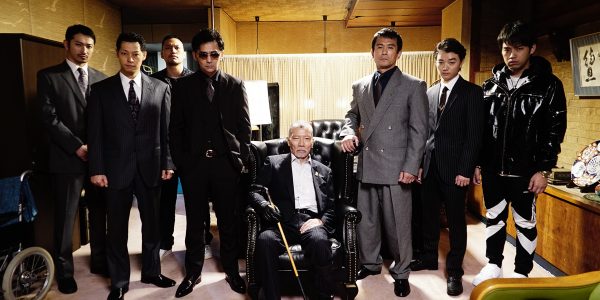
First Love via TIFF
Kelly McNeely: So what’s the genesis of First Love? Where did this movie come from?
Takashi Miike: So this all started from a proposal to make the kind of film that recently has been given short shrift in the Japanese film industry. A long time ago, we would be filming these kind of genre-esque films for direct to video projects. And I got a proposal from Toei Films to bring that kind of thing back, similar to like, the Dead or Alive, that kind of the B-cinema type of film.
I was very happy about that, because recently, a lot of the film industry is very adverse to anything that’s kind of genre film-esque. They’re very risk adverse, and they’re trying to go for all these commercial films. And so when I received this proposal, I thought, Oh, that’s great. I mean, I wasn’t expecting to get any proposal like this from a major film production company. And so I thought, well, I should do this then. So the idea was to work on it based off an original idea — an original script. And so I started working working with a script writer, and that’s how the film came about.
Kelly McNeely: Now, you obviously have a very prolific career, and you’ve done so many types of films; genre based, action, comedy, family films, period dramas… Is there a particular genre you enjoy working in the most?
Takashi Miike: Well, honestly, I am really not that aware of genres, and genre boundaries, per se. You have a period piece, right? You have a Yakuza film, you have a kids film, and there’s like this strict categorization going on of all these genres these days. But it didn’t used to be that way. And I still kind of see things through that previous filter, right, where it could be a Yakuza film, and yet it’s a comedy, right? Or it could be a kids show and it could be a tragedy, you could be at a funeral and someone says something, and everyone burst out laughing. So for me, it’s all mixed up.
But what for me is most important is these universal themes that bind us together. Like where am I going, what is the purpose of my life, what is death? To me, what is happiness? Can I be happy? How can I become happy and get happy or be happy? All these themes to me, those are the nuts and bolts that go into any kind of good film, and those are the same for me no matter what genre we’re talking about. And so — for me — a good film completely extends or is is not bound by the boundaries of genre.
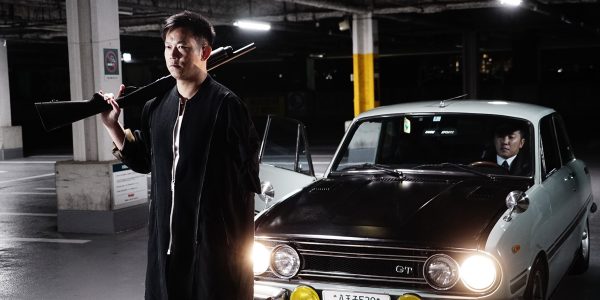
First Love via TIFF
Kelly McNeely: First Love has a lot of fantastic comedy — it’s very funny — and a lot of fantastic action. And there’s an animated sequence. Where did that anime sequence come from, the idea to bring that in?
Takashi Miike: I’ve had several films in the past that have transitioned suddenly from live action to anime, or from live action to claymation, for example. And so we’re working with budget constraints, we’re working with time constraints, and also, the human factor. And sometimes we would come up against these issues that would cause some complications in filmmaking. It would be very difficult to make this happen due to all these constraints.
But at the same time, we’re looking at the script, and we have these ideas in the script that we want to transmit — we want to convey that idea, or that plot development. And so we’re trying to make this film, and we have things like that come up. And so that’s kind of in the background, but really, more importantly than that, I actually wanted to incorporate an anime scene again in one of my films before we even started making this. So really, that’s kind of the reason. I looked at the script, and I said, actually, it would be fun to find a way to incorporate anime scenes in this film, and the chance to do that came up.
So yes, so the you have your live action Yakuza that parts of a film, right. And those live action parts of the film, because they’re depicting the Yakuza, they’re already in the fantasy realm. There’s this coolness or this vibe that you want to get across in those kinds of scenes. And just because of that very nature, you’re already in fantasy.
And the reason I say that you’re already in Fantasyland when you’re doing that is because those kinds of Yakuza do not exist in contemporary Japan, we’re depicting something that really no longer exists in Japan. So it’s not that much of a stretch for us to go from one fantasy type of a scene to a fantasy scene that has been depicted using a different method. So, for me to go from a live action Yakuza kind of fantastic scene, to a fantastic, very fantasy-esque scene that’s been developed using anime techniques is really not that uncomfortable. It doesn’t seem that out of place for me.
Kelly McNeely: You talked a little bit about working with budget constraints and using animation to incorporate ideas that you maybe could not necessarily film. What advice would you give to an aspiring filmmaker who wants to start directing?
Takashi Miike: So my advice, well, I’m not sure if my advice will actually be useful, or even appreciated by anyone. But since those aspiring directors have chosen that lifestyle, they’ve chosen to live in this world that is filmmaking. That’s one thing, it’s another thing to be able to pay the bills and put food on the table, right?
And so, my advice really is instead of focusing too much on tomorrow and the future, just focus on right now, the film that you’re making right now, put your focus on enjoying that process and just get completely lost in what you’re making right now.
Now, you may fight with your producer. And you may have some disagreements there. But if the film that you’re making right now is successful because you really put everything into it, and you just completely got lost and enjoyed the process. The chances of it being successful are greater. And if it’s successful, then you can reset the clock again, you can go back to zero, you can reset your relationship with your producer and you can start over again. So that really is my advice, is to just focus on what you’re making right now. Focus on what you’re doing right now instead of trying to meticulously calculate your future plan for filmmaking. Just focus on right now.
And then they should also drink lots of milk
Kelly McNeely: To stay strong?
Takashi Miike: Well, I say that because three years ago, we were actually filming on set and we were just doing like a rehearsal — like a run through, it was like a test run for the actors to do the scene. And suddenly — and I wasn’t doing anything, particularly difficult — but suddenly my left leg broke. And so instantly the film director just became baggage for everyone else working on the film. And so I say that because everyone needs to make sure they get enough calcium [laughs].
Kelly McNeely: Excellent advice! Now speaking of those kinds of experiences, you’ve made over 100 films and projects. Is there a particular film or experience of working on a film that really stands out to you the most, that you’re either most proud of, or that you enjoyed the most, or that is very memorable to you?
Takashi Miike: Yes, absolutely. So one of my films that I really love the most and I enjoyed the most was the film Fudô, and there’s a story behind that.
The reason why I enjoyed it the most or I had the most fun with that is because it was kind of at the beginning of my career, when I really had not much international recognition. And expectations were also very low. For the film, it was going to be a direct to video — it wasn’t actually going to be even released on any kind of recognizable format. So, it was okay if it didn’t sell at all, and it was very cheap. And the whole objective was just to get it done.
And actually, it was based on a manga. And the manga series that it was based on got canceled halfway through the series. But I saw something really interesting in that it just was very fascinating to me, and I thought let’s do this, this was not going to be released officially, it was just going to be a direct to video original work. And because of that we didn’t have any restraints at all. We didn’t have many checks and balances going on. And I just really focused on that.
I focused on it, and I just enjoyed it so much that I really didn’t even have time to sleep, I literally did not sleep when I was making the film. And then when we were done with it, my producer saw it and said, this is actually really good. Let’s actually turn this into a film release. And that became my first film that was actually picked up by a film festival. And it was actually picked up by Midnight Madness here at Toronto Film Festival. And so this half assed canceled manga series that I saw something in, it left this impression on me, and I saw something in that and just focused on that. And that became this success story that turned into my motivation. And gave me energy to continue to make films.

First Love via TIFF
Kelly McNeely: You are being honored with a Lifetime Achievement Award at Fantastic Fest very soon. How does that feel?
Takashi Miike: I think people see that as something that you should receive that like the very end of your life [laughs]. And so, maybe instead of being a being called a Lifetime Achievement Award, it should be kind of kind of like a halfway or mid career achievement award. That would be much more comfortable to me.
So it’s interesting, because in the film festival world, it really was foreign film festivals — not the Japanese film industry — that started to pay attention to my work. And that really offered me some emotional support for the work that I was doing. And it really inspired me to make more and more films.
And it was funny, because in Japan, I think a lot of people saw me traditionally as like, he’s not a real movie director or real film director. He’s just doing like those genre, or direct to video shows, those aren’t real movies, right? And it was kind of foreign audiences that took my work and said, No, this is good work. These are films, and these deserve an audience.
And so there’s a part of me that’s very thankful for that. They said, we don’t care about the genre, genre doesn’t matter. This is something that needs an audience, and these are films to us. And so I feel like if I do end up getting an award like that, I feel like that may give me some motivation and some additional energy to keep making films. And I feel like it may actually give me some freedom as well. To face my future in filmmaking with a little bit more freedom and a little bit more energy.
Kelly McNeely: Again, you’ve been making films and so many prolific films for so long, which is incredible. Do you feel your style as a director has changed over time, or is there anything that you feel that you’ve learned through that process that you carry forward with you?
Takashi Miike: So it’s funny, because I feel that the trajectory of my career as a filmmaker has actually been kind of reversed, compared to a lot of other filmmakers. As you go through the process of making films, you come up against all these challenges. And these problems that you’re trying to solve, and then these different types of films that you’d like to make, and so your to do list gradually gets bigger and bigger and bigger, and then what you’re trying to achieve — your target — as you move forward, also changes with each film.
Then you have your producer, or your sponsors who are funding your films, for example, and they have maybe something that they’re trying to achieve as well. So you’re looking at what they’re trying to achieve — their dream — and you’re also looking at what kind of dream or vision they’re trying to impart to their audiences. And that’s something that recently has become more and more important, to me, is to focus on what are the expectations of the people who are sponsoring me, and who are funding the films.
At the same time, I am a film director that has created an expectation in my fan base, to create films that have that violence in them. And so, someone might may say we want to make this film without any violence in it, or we think that it’s probably better to just tone it down a little bit. And I look at that, and I say, you know what, I have kind of this expectation, so let’s see, maybe if we can push the envelope a little bit, and see if we can incorporate some of that into there while still keeping the essence of the film. And so I enjoy that challenge.
That at the same time has kind of made it so that I see myself in a new light; it’s brought me to this place where, like, a new me is born. And I see myself changing through this process, which for a long time was very scary. But now I see it as something that’s very fun. It’s fun! It’s interesting for me to think about the prospect of changing as a filmmaker as I’m moving forward. So I hope that answers your question.
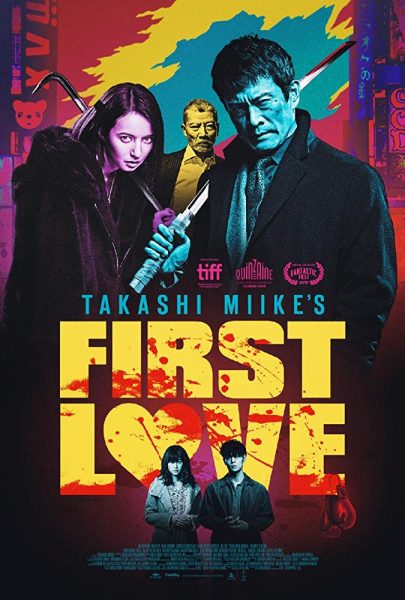
Click here for more reviews and interviews from TIFF 2019!
Want to stay up-to-date on the latest horror news? Click here to sign up for our eNewsletter.
Listen to the 'Eye On Horror Podcast'

Movies
Watch ‘Immaculate’ At Home Right Now
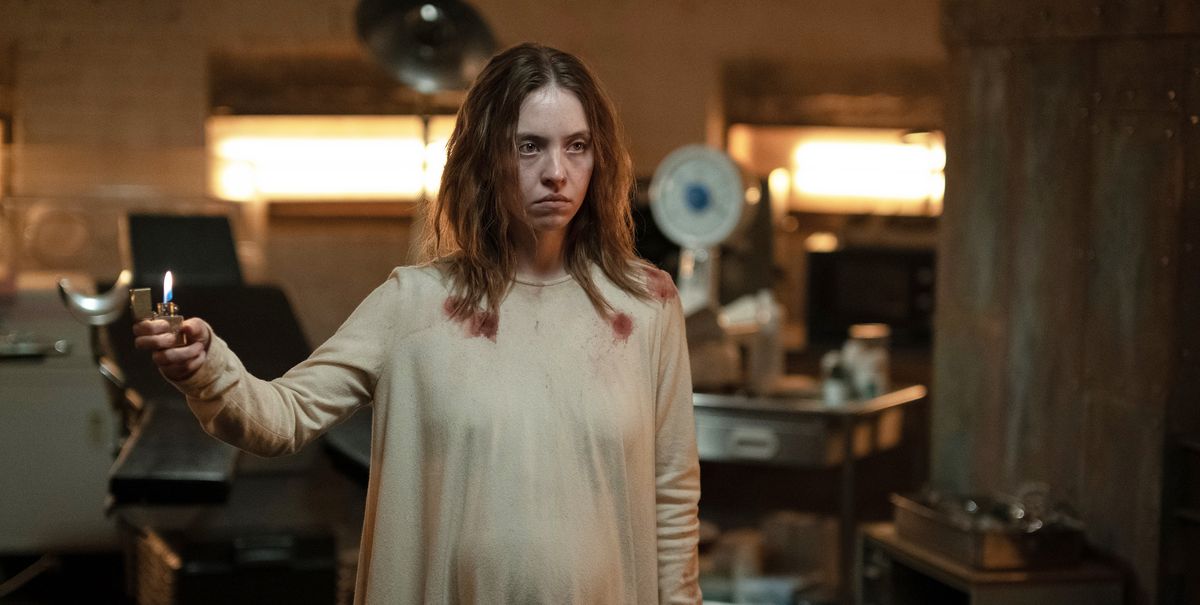
Just when we thought 2024 was going to be a horror movie wasteland, we got a few good ones in succession, Late Night With the Devil and Immaculate. The former will be available on Shudder starting April 19, the latter just had a surprise drop on digital ($19.99) today and will be getting physical on June 11.
The film stars Sydney Sweeney fresh off her success in the rom-com Anyone but You. In Immaculate, she plays a young nun named Cecilia, who travels to Italy to serve in a convent. Once there, she slowly unravels a mystery about the holy place and what role she plays in their methods.
Thanks to word of mouth and some favorable reviews, the movie has earned over $15 million domestically. Sweeney, who also produces, has waited a decade to get the film made. She purchased the rights to the screenplay, reworked it, and made the film we see today.
The movie’s controversial final scene wasn’t in the original screenplay, director Michael Mohan added it later and said, “It is my proudest directorial moment because it is exactly how I pictured it. “
Whether you go out to see it while it’s still in theaters or rent it from the convenience of your couch, let us know what you think of Immaculate and the controversy surrounding it.
Listen to the 'Eye On Horror Podcast'
Movies
Politician Spooked By ‘First Omen’ Promo Mailer Calls Police
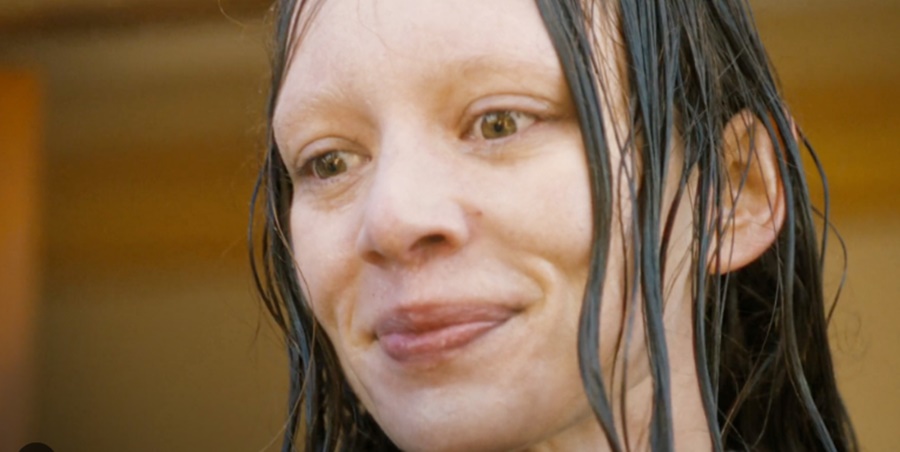
Incredibly, what some people thought they would get with an Omen prequel turned out to be better than anticipated. Maybe it’s partly due to a good PR campaign. Maybe not. At least it wasn’t for a pro-choice Missouri politician and film blogger Amanda Taylor who received a suspicious mailer from the studio ahead of The First Omen’s theatrical release.
Taylor, a Democrat running for Missouri’s House of Representatives, must be on Disney’s PR list because she received some eerie promo merch from the studio to publicize The First Omen, a direct prequel to the 1975 original. Usually, a good mailer is supposed to pique your interest in a film not send you running to the phone to call the police.
“I was freaking out,” says the blogger who filed a police report about #TheFirstOmen PR. “My husband touched it, so I’m screaming at him to wash his hands.” The studio, for its part, regrets frightening anyone but notes that “most people had fun with it” https://t.co/9vq7xfD8kI pic.twitter.com/9KUMgvyG2Q
— The Hollywood Reporter (@THR) April 13, 2024
According to THR, Taylor opened the package and inside were disturbing children’s drawings related to the film that freaked her out. It’s understandable; being a female politician against abortion it’s no telling what kind of threatening hate mail you’re going to get or what might be construed as a threat.
“I was freaking out. My husband touched it, so I’m screaming at him to wash his hands,” Taylor told THR.
Marshall Weinbaum, who does Disney’s public relations campaigns says he got the idea for the cryptic letters because in the movie, “there are these creepy drawings of little girls with their faces crossed out, so I got this idea to print them out and mail them to the press.”
The studio, maybe realizing the idea wasn’t their best move, sent out a follow-up letter explaining that it was all in good fun to promote The First Omen. “Most people had fun with it,” adds Weinbaum.
While we can understand her initial shock and concern being a politician running on a controversial ticket, we have to wonder as a film enthusiast, why she wouldn’t recognize a crazy PR stunt.
Perhaps in this day and age, you can’t be too careful.
Listen to the 'Eye On Horror Podcast'
News
A24 Joins Blockbuster Movie Club With Their Biggest Opening Ever
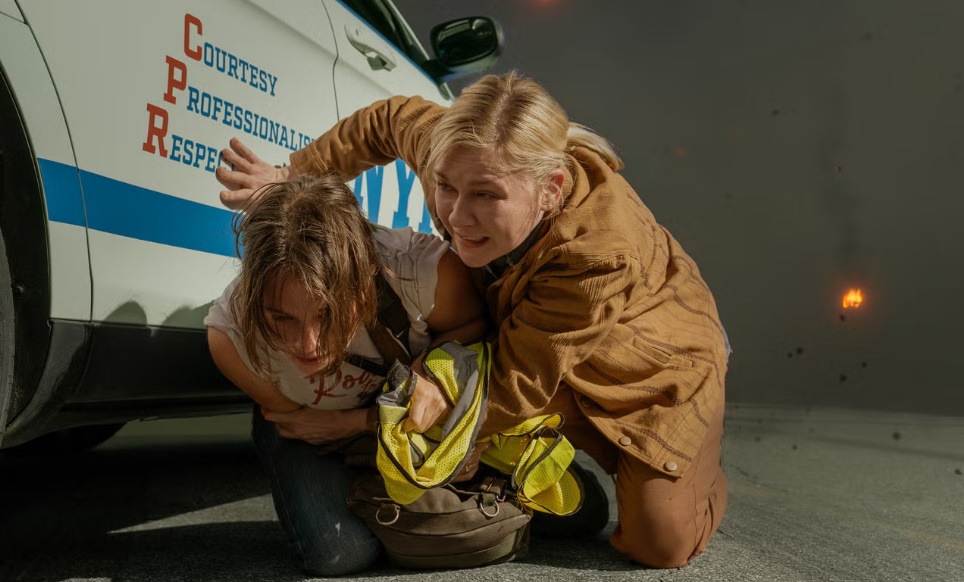
Everyone welcome A24 to the big leagues! Their latest film Civil War has broken a few records over the weekend. First, it’s the highest-grossing R-rated film of the year. Second, it’s the highest-grossing opening weekend A24 film ever.
Although reviews of the action film are polarizing, it certainly captured the curiosity of moviegoers. Even if the ambiguous screenplay didn’t blow them away, they seemed to find it entertaining. Furthermore, a lot of ticket buyers lauded the film’s sound design and IMAX presentation.
While not a straight-out horror movie, it does weave a thread on the hem of the genre thanks to its disturbing subject matter and graphic violence.
It’s about time A24 came out of the independent movie trenches and into the blockbuster category. While their features are embraced by a niche group, it was time they swung for the fences to generate a bigger payday to compete with behemoth studios such as Warner Bros. and Universal who have been making money hand over fist over the past few years.
While Civil War’s $25 million opening isn’t exactly a windfall in blockbuster terms it’s still solid enough in the mainstream movie-going climate to predict further success, if not by word of mouth, then by curiosity.
A24’s biggest money maker to date is Everything Everywhere All at Once with an over $77 million domestic haul. Then it’s Talk to Me with over $48 million domestically.
It’s not all good news. The film was made in-house for $50 million so if it tanks by week two, it could turn into a box office failure. That could be a possibility as the guys behind the Scream reboot, Radio Silence, will be on the marquee themselves for their vampire flick Abigail on April 19. That film has already generated some good buzz.
Even worse for Civil War, Ryan Gosling and Emma Stone’s own actioneer The Fall Guy is ready to usurp Civil War’s IMAX real estate on May 3.
Whatever happens, A24 has proven over the weekend that with the right subject matter, an increased budget, and a streamlined ad campaign, they have now entered the blockbuster chat.
Listen to the 'Eye On Horror Podcast'
-
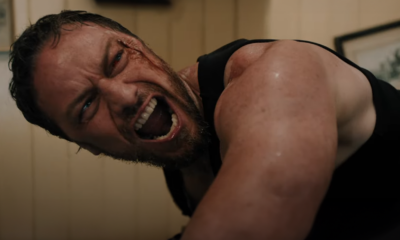
 Trailers5 days ago
Trailers5 days agoJames McAvoy Captivates in the New Trailer for ‘Speak No Evil’ [Trailer]
-

 Trailers7 days ago
Trailers7 days ago‘Joker: Folie à Deux’ Official Teaser Trailer Releases And Showcases Joker Madness
-
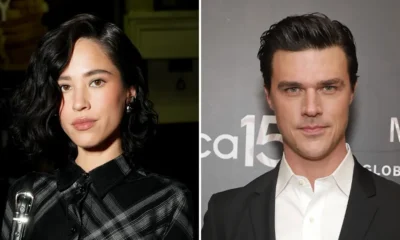
 Movies6 days ago
Movies6 days agoSam Raimi Produced Horror Film ‘Don’t Move’ Is Headed To Netflix
-

 Trailers4 days ago
Trailers4 days agoWatch the trailer for ‘Under Paris,’ the movie people are calling ‘French Jaws’ [Trailer]
-

 Trailers6 days ago
Trailers6 days ago“The Contestant” Trailer: A Glimpse into the Unsettling World of Reality TV
-

 News6 days ago
News6 days ago“The Crow” Reboot Delayed to August & “Saw XI” Postponed to 2025
-

 Movies6 days ago
Movies6 days agoBlumhouse & Lionsgate to Create New ‘The Blair Witch Project’
-
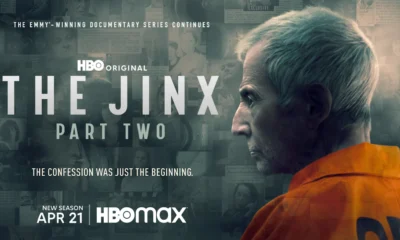
 Trailers6 days ago
Trailers6 days agoHBO’s “The Jinx – Part Two” Unveils Unseen Footage and Insights Into Robert Durst Case [Trailer]
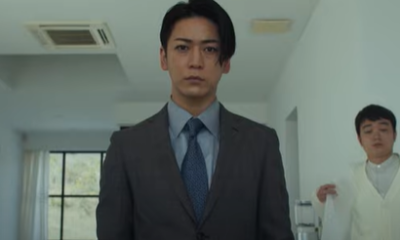

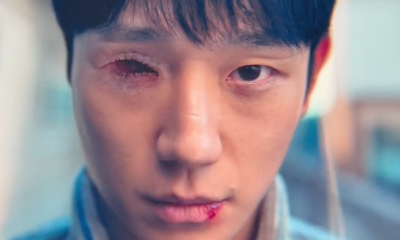

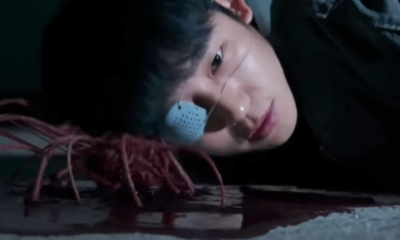
















You must be logged in to post a comment Login